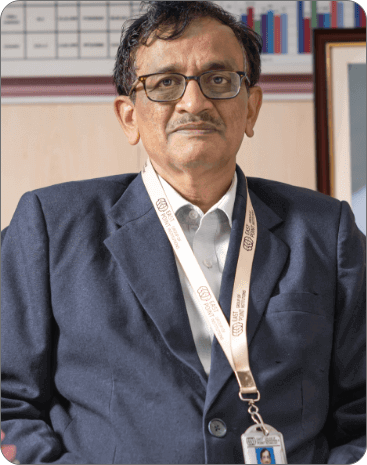 APPLY
NOW
APPLY
NOW
The Department of Civil Engineering was established in
the year 2009. The department offers BE program in Civil Engineering with an intake of 60 students and M. Tech.,
program in Construction Technology with an intake of 18 students. The programs are approved by AICTE and degrees
are awarded by Visvesvaraya Technological University, Belgaum.
The department has been recognized as a VTU-research centre in the year 2014, with 6 research scholars
currently pursuing their Ph D programmes.
There are 12 faculty members in the department possessing specializations in the fields of Structure
Engineering, Geotechnical Engineering, Geology, Water-resources, Transportation, Construction Management, Remote
sensing and Environmental Engineering.
The department has carved its niche in the areas of academics, research, consultancy, collaborative
projects, and publications.
1. Engineering knowledge: Apply the knowledge of mathematics, science, engineering fundamentals, and an engineering specialization to the solution of complex engineering problems.
2. Problem analysis: Identify, formulate, review research literature, and analyse complex engineering problems reaching substantiated conclusions using first principles of mathematics, natural sciences, and engineering sciences.
3. Design/development of solutions: Design solutions for complex engineering problems and design system components or processes that meet the specified needs with appropriate consideration for the public health and safety, and the cultural, societal, and environmental considerations.
4. Conduct investigations of complex problems: Use research-based knowledge and research methods including design of experiments, analysis and interpretation of data, and synthesis of the information to provide valid conclusions.
5. Modern tool usage: Create, select, and apply appropriate techniques, resources, and modern engineering and IT tools including prediction and modelling to complex engineering activities with an understanding of the limitations.
6. The engineer and society: Apply reasoning informed by the contextual knowledge to assess societal, health, safety, legal and cultural issues and the consequent responsibilities relevant to the professional engineering practice.
7. Environment and sustainability: Understand the impact of the professional engineering solutions in societal and environmental contexts, and demonstrate the knowledge of, and need for sustainable development.
8. Ethics: Apply ethical principles and commit to professional ethics and responsibilities and norms of the engineering practice.
9. Individual and team work: Function effectively as an individual, and as a member or leader in diverse teams, and in multidisciplinary settings.
10. Communication: Communicate effectively on complex engineering activities with the engineering community and with society at large, such as, being able to comprehend and write effective reports and design documentation, make effective presentations, and give and receive clear instructions.
11. Project management and finance: Demonstrate knowledge and understanding of the Engineering and management principles and apply these to one’s own work, as a member and leader in a team, to manage projects and in multidisciplinary environments.
12. Life -long learning: Recognize the need for and have the preparation and ability to engage in independent and life -long learning in the broadest context of technological change.
PSO 1. The graduates will have the ability to prepare plan, analyze and able to design cost effective solutions without over exploitation of natural resources.
PSO 2. The graduates of civil engineering program will have the ability to take up employment, entrepreneurship, higher studies, research and development for sustainable civil society through ICT tools and lifelong learning

Greetings and welcome to the Department of Civil
Engineering at EPCET!
Civil Engineering is one of the discipline of Engineering profession that deals with the design,
construction and maintenance of all type of manmade structures like buildings, roads, bridges, canals, dams,
airports, sewerage systems, pipelines, and railways etc.
Without the existence of Civil Engineering, society wouldn’t function properly. There would be no treated
water to drink, no safe buildings and structures, no transportation infrastructure for travelling and no
drainage and irrigation channel.
There are multiple sub-division and specializations in Civil Engineering such as Architecture engineering,
Coastal engineering, Construction engineering, Structural engineering, Earthquake engineering, Environment
engineering, Geotechnical engineering, Transportation engineering, Hydraulic and water resources engineering,
Nanoscience and nanotechnology, and Urban engineering. Depending on the interest of an individual, he/she can
specialize.
Department of Civil Engineering is committed to working towards developing Engineers with a rich blend of
Knowledge, Cognitive abilities, technical competencies, practical skills in the domain of Civil Engineering, and
21st Century skills to ensure the holistic development of students. Department places emphasis on all the
important aspects of Civil Engineering such as structural engineering, geotechnical engineering, construction
technology, transportation, hydraulic and water resources engineering, environmental engineering and application
of modern technologies and tools in civil engineering.
Department is well prepared for the teaching of the courses. Faculty use modern teaching aids, innovative
pedagogical methods for quicker learning of concepts, and design innovative assessment methods for igniting the
students’ thinking. Department offers a number of competency and skill development courses to make the students
industry-ready. To bridge the gap between industry and academia a number of courses are offered through Industry
Institute Integrated Learning programs.
Students are trained in life skills- focusing on communication skills, behavioural skills, ethics, and human
rights and environmental aspects. Opportunities are available for students to study courses related to
innovation and entrepreneurship development. The placement department offers a number of courses that help
students to prepare for the corporate environment.
Department conducts a number of co-curricular activities like hackathons, technical fests for students to
compete. Students are encouraged to take part in intercollegiate competitions. There are a number of technical
clubs where students can become members and pursue their technical interests. Students are encouraged to take
part in sports, cultural activities, and community services.
Department encourages and assists students to do their internships in well-known technology companies and
Department lays emphasis on student projects to help students to learn to solve near–real-life problems.
Thus, I assure a holistic development of students joining our department and prepare them to face the future
with confidence.
Join us to learn and experience the modern Civil Engineering program at EPCET!